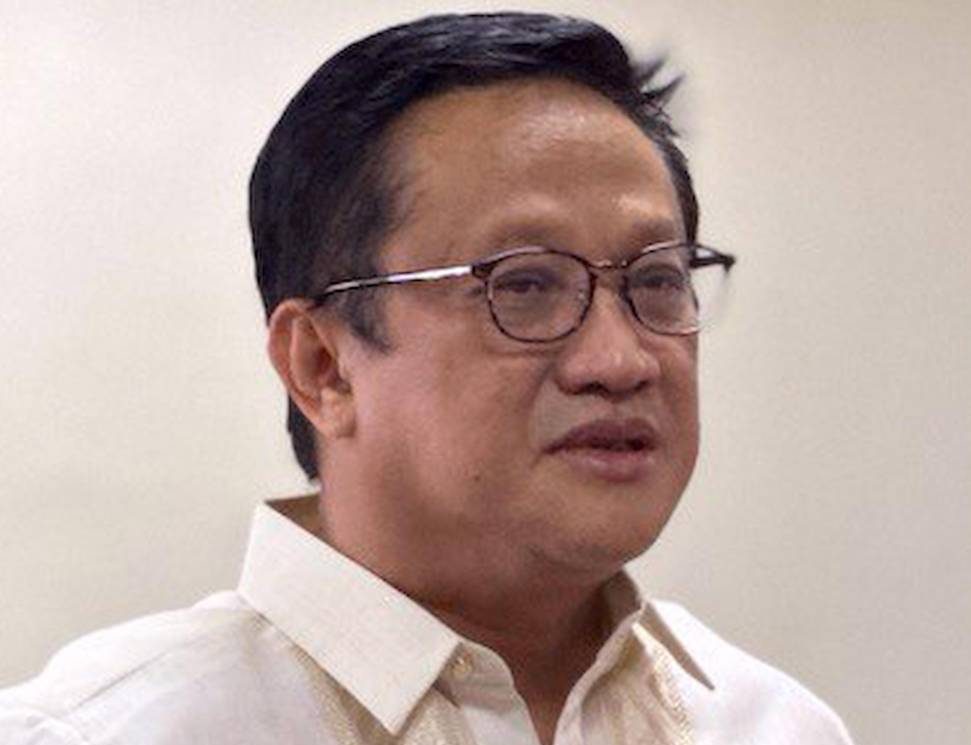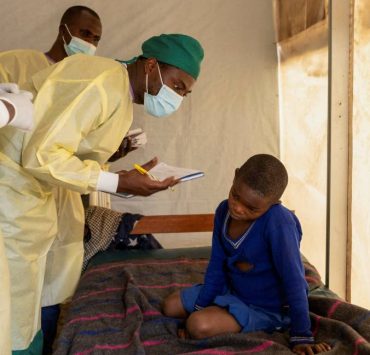UP prez on new accord: Defense establishment ‘not an enemy’

The president of the University of the Philippines (UP) sought to allay fears among stakeholders that its recently signed “Declaration of Cooperation” with the military would curtail academic freedom on its campuses.
In a statement issued on Wednesday to explain the agreement, UP president Angelo Jimenez said: “Our policy is engagement. The national defense establishment as an institution is not an enemy.”
The agreement “does not violate academic freedom and is consistent with the mandate of UP as the county’s premier institution of higher learning,” Jimenez added.
As an initial framework to guide future areas of cooperation, he said, it “won’t curtail academic freedom because UP researchers can choose and define their specific terms of engagement. Any activity undertaken shall be mutually agreed upon by both participants.”
The agreement has sparked criticism since it was signed by UP and the Armed Forces of the Philippines on Aug. 8, as it also drew contrast to the state university’s past efforts to bar military and police presence on its campuses without prior notice to the UP administration.
This restriction, aimed at guarding UP’s historic role as a venue of progressive discourse and bastion of student activism since the Marcos dictatorship, was affirmed in two accords in the 1980s. But it was scrapped unilaterally in 2021 by the Department of National Defense on the ground that it was being used by communist insurgents and their sympathizers to prevent law enforcers from operating against them on UP campuses.
Think tank’s role
On Wednesday, Jimenez pointed out that the state university had worked with the defense sector in the past “as part of a whole-of-society engagement to help inform public policy, influence thinking, and improve lives through UP’s renowned scholarship.”
Under the new agreement, a university think tank, the UP Center for Integrative Development Studies (UP CIDS), will be leading the latest collaborative effort. Jimenez said “UP CIDS is free to pursue research interests with AFP in areas that are relevant to UP’s role, mission and mandate.”
“This in itself is an exercise in academic freedom. The only thing required is conformity to the highest standards of academic rigor in the pursuit of truth.”
The center’s work under the agreement were further specified as follows: share its technical expertise through resource persons for the successful conduct of forums and workshops; solicit articles from AFP personnel for submission to the UP CIDS-published Philippine Journal of Public Policy, subject to peer-review procedures; “be invited” as guest-editors to review article submissions to the Quarterly Digest of the AFP Office of Strategic Studies and Strategy Management (OSSSM);
Organize dissemination of UP CIDS research and conduct capacity building for AFP OSSSM personnel and affiliates in relation to strategic studies and security; and host AFP personnel visits, exchanges and research fellowships. Both parties also affirmed a common commitment to dialogue and intellectual freedom.
Past partnerships
Jimenez said the Aug. 8 declaration was similar to initiatives that led to research collaborations between the university and the uniformed services. He cited as an example the June 2023 memorandum of understanding between the UP College of Engineering and the Philippine National Police Research and Development Center, which involved studies to enhance ballistic defense materials.
In May 2023, he added, the AFP and UP Manila signed a five-year memorandum of agreement for the training of civilian and military dentists at the UP College of Dentistry.
The history department of UP Diliman co-published books on Philippine military history in partnership with the Philippine Veterans Affairs Office, an attached agency of the defense department, he recalled.
UP academic officials and UP CIDS researchers would be willing to clarify questions and doubts through an open dialogue, Jimenez added.
“We welcomed this cooperation with the AFP because UP’s strength in academics and research can serve as an instrument of national unity,” he said, noting that the current AFP chief of staff, Lt Gen. Romeo Brawner Jr., and Defense Secretary Gilbert Teodoro are both UP graduates.
The agreement has alarmed various sectors of the UP community since the AFP made it public through posts on its social media accounts on Aug. 10. The posts were later taken down without explanation.
UP union joins outcry
Among the first to question the agreement were the university’s sectoral regents representing faculty, students and personnel, the student council alliance Kasama sa UP and Defend UP Network.
They earlier issued a joint statement denouncing, among others, Jimenez’s “undemocratic action” of having entered into the agreement with the AFP without prior consultation.
Hours before Jimenez’s statement on Wednesday, All UP Academic Employees Union added its voice to the objections.
Rommel Rodriguez, the union vice president for faculty, said that if the AFP “did not mistakenly” post a press release about the declaration on its Facebook page, the rest of the UP community would not have learned about it.
“Now that this is out, it seems that the UP administration is trying to minimize the rage and criticism from the UP community in the administration’s connivance with the AFP,” Rodriguez said at a press conference.
Jimenez himself should face the UP community and “prove” that he would indeed advance the interests of UP “and not the interests of a government agency that is known to be violating human rights,” he added. INQ Under the new agreement, a university think tank, the UP Center for Integrative Development Studies (UP CIDS), will be leading the latest collaborative effort. Jimenez said ‘UP CIDS is free to pursue research interests with AFP in areas that are relevant to UP’s role, mission and mandate’

















